Introduction
Starting a new career is always a big decision, and if you’re thinking about becoming a licensed insurance professional, you’re not alone. Today, more people are discovering that a career in insurance offers a steady path with long-term potential. Whether you’re fresh out of school, changing careers, or getting back into the workforce, this field welcomes people with many backgrounds and skill sets.
Insurance isn’t just about paperwork and policies. It’s about helping real people make smart choices during important parts of their lives. From protecting homes along the coast to helping families plan for the future, there’s a strong sense of purpose behind what agents do every day. If you’re looking for a way to grow your career while making a difference, this could be your start.
Understanding The License Requirements
Before you can work as a licensed insurance agent, you need to meet your state’s requirements. These steps are designed to make sure you’re ready for the role and understand the products and responsibilities that come with it. While it may seem like a lot at first, each part sets you up for success.
Here’s what you’ll need to do:
1. Complete pre-licensing education or exam preparation. Every state requires you to pass their insurance licensing exam to get licensed. Some states, like Florida, require you to complete pre-licensing education courses before you can register to take the state exam. Whether you have to take pre-licensing or simply want to prepare with an exam prep class, the courses are based on the type of insurance license you want. These could be for life, health, property, or other kinds of coverage. These courses help you get familiar with policy details, state laws, and customer needs, as well as prepare you for your state exam.
2. Pass the state exam. Once your class is complete and you feel ready, you’ll need to take and pass a state exam. Each license type has a different test which you’ll register for and take through an exam provider, usually PearsonVUE or PSI. Most people review outlines and practice questions to feel more confident before exam day.
3. Submit fingerprints and a background check if required. Florida requires fingerprinting and a background check for all new applicants, and most other states are following suit. You must use a state-approved vendor to complete electronic fingerprinting. Instructions and vendors can usually be found on your state’s Department of Insurance website.
4. Apply for your license. After passing the exam and completing the background process, you can apply for your license online. Many states now utilize NIPR or Sircon for license applications but a few, like Florida, still use a state system. Instructions and details are available on your state’s website. You will need to upload any required paperwork, complete the application, and pay the required fees.
Keep everything organized. Store copies of your documents, login info, and confirmation emails in one spot. Having this ready saves time and helps if you’re ever asked to resend anything.
Choosing The Right Insurance Specialization
One of the first things to consider in your insurance agent career path is what type of insurance you want to work with. There are many specializations available, and each one serves people in different ways.
Here are a few common options:
– Life Insurance: Work with families as they make plans for the future.
– Health Insurance: Help clients understand their healthcare coverage and choices.
– Property and Casualty Insurance: Support homeowners, renters, and drivers, especially after storms or damage. All-Lines Training offers pre-licensing and exam prep courses for this type of license.
– Commercial Lines: Protect businesses of all sizes, from cafes to contractors.
Think about what interests you. Someone who enjoys numbers and long-term planning may prefer life insurance. If you have a background in health care, health insurance might feel more natural. For example, one agent who had worked in home renovation became a property insurance agent. Their repair experience helped them speak to clients with more confidence and clarity.
Choosing something that plays to your strengths makes it easier to relate to clients and grow your confidence.
Developing Essential Skills
Getting a license is the beginning. To succeed in the long run, you need to develop skills that help you build trust with clients and manage daily tasks.
Start with communication. Agents explain policies, answer questions, and help people make life-changing decisions. Being calm, clear, and patient goes a long way.
Problem-solving is just as important. Each client has a unique situation. You’ll need to figure out the best plan for their needs and explain it in a way that makes sense.
Organization skills are valuable too. You’ll juggle client records, renewals, and follow-ups. A good system can prevent mistakes and delays.
You can start practicing these skills before your first role:
– Take free online classes in public speaking or customer service.
– Do mock interviews or practice selling a sample policy to a friend.
– Try reading real-life case studies from other agents.
– Sign up for local workshops that cover sales, communication, or ethics.
Most states also require insurance professionals to complete a certain number of continuing education hours and renew their licenses every few years. The CE courses keep you updated on state laws, trends, and changes in the marketplace. Staying informed helps you offer better service and keeps your license active. Renewing your license can be done online by submitting a renewal application, proof of CE, and paying a fee.
Building Your Professional Network
Getting to know others in insurance is one of the best ways to stay motivated and grow. Whether you’re just getting started or already licensed, professional connections open doors that might not show up in a job search.
Where can you connect with others?
1. Join local groups for insurance professionals or small business owners.
2. Stay in touch with your licensing classmates on social media or at meetups.
3. Attend fairs, workshops, or career events in your area.
4. Use LinkedIn to find and follow other agents or mentors. Respond to helpful posts or share resources that have worked for you.
5. Keep an eye on state-specific departments that share licensing updates or rule changes.
One agent from Central Florida said they found their first job through a classmate they met in a study group. They helped each other prepare for the exam and stayed connected afterward. When one landed a job with a new agency, they referred the other. It just took a bit of consistent effort.
Networking doesn’t have to be big or fancy. A simple message or regular check-in can be all it takes to build real support.
Getting Started In Your Insurance Career
So, you’ve got your license and picked a focus area. Next, it’s time to put everything into action and find your place in the field.
Start by tailoring your resume. Highlight what you learned in your courses, what strengths you bring to the table, and your interest in helping clients. If you’ve had past jobs in sales, service, or communication, be sure to include those experiences. Make sure to emphasize any experience you have in insurance as well.
Before going into an interview, take time to learn about the company. Practice talking about why you chose this specialization and what kind of clients you’d like to work with. Employers will see your interest and preparation.
It’s smart to find a mentor early on. This person could be someone you met in class, a lead trainer, or a more experienced agent you met while networking. They can answer questions, share tools they use, and give tips based on first-hand experience.
Once you start working, set goals that keep you moving forward. These could be things like calling a set number of clients each week, learning more about a product, or finishing your first continuing education course. Mark your accomplishments and celebrate your wins, big or small.
What Comes Next Is Up to You
Becoming a licensed insurance professional is a big step, and getting here means you’ve already shown a lot of drive. From learning the basics to choosing your path and building new skills, this career has room for growth, learning, and making real connections with people.
Whether you’re based in a busy city, a quiet coastal town, or rural America, there are opportunities everywhere because everyone needs insurance. Every client you assist is someone counting on you to help them figure out what’s best for their future.
Your path as an insurance agent can be whatever you make of it. Keep learning, keep asking questions, and keep showing up. Little by little, it adds up to something meaningful—not just for your clients, but for your own life too.
Begin your journey as an insurance professional with support from All-Lines Training. Whether you’re just starting or looking to specialize, we’re here to help through pre-licensing courses, exam prep, and continuing education. Explore how you can build a rewarding future by following a clear insurance agent career path designed to set you up for success.



